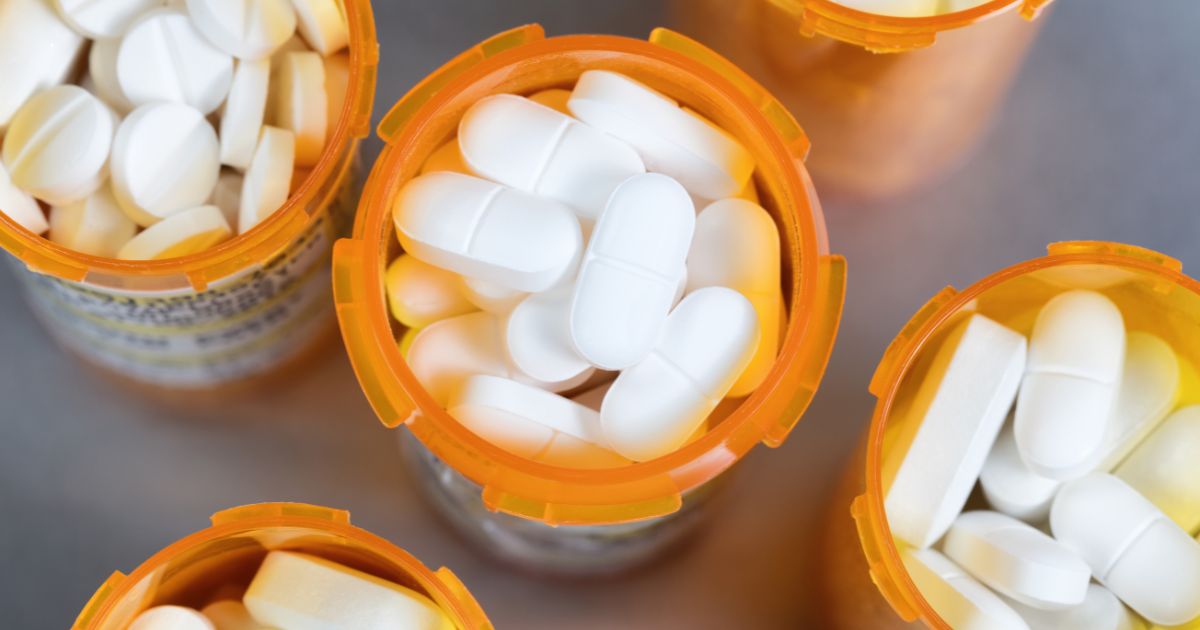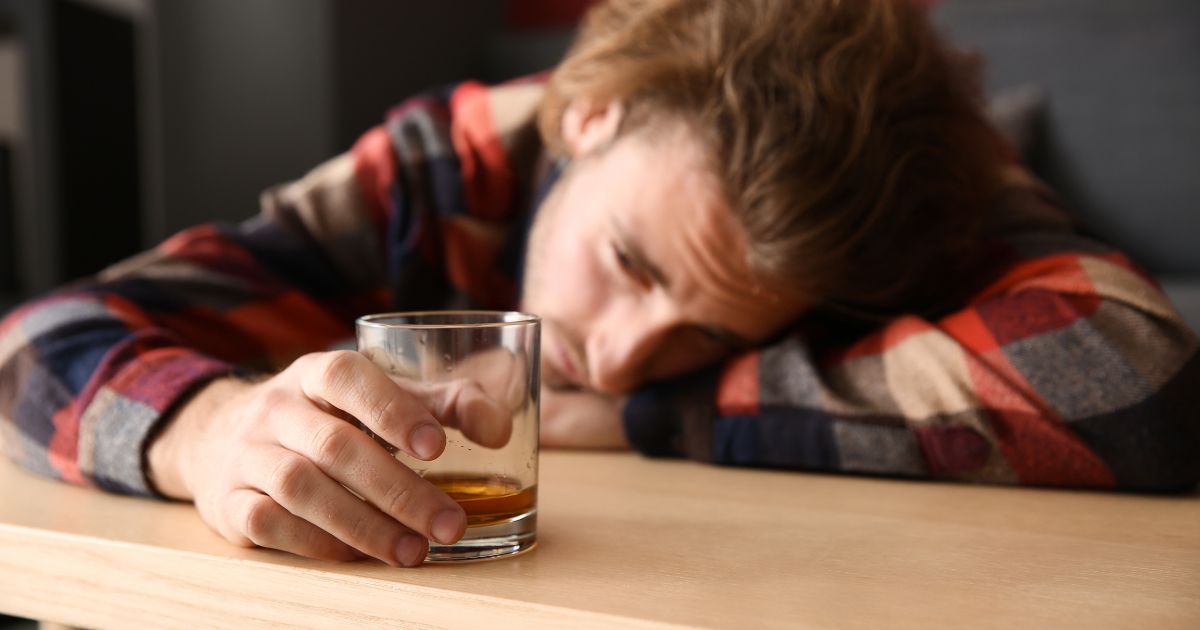Why Do I Get Anxiety After Drinking Alcohol?
An alcohol hangover is not a pleasant experience. When sobering up from a night of drinking, many people report feeling more anxious. This seems counter-intuitive since people use alcohol to feel good. Why alcohol increases anxiety is the question.
The reason for anxiety after drinking lies in how alcohol impacts the brain. Alcohol interferes with the brain’s communication pathways and changes the way people think and behave.
Initially, it lowers inhibitions and causes a sense of euphoria. This can make a person feel less inhibited and more social, leading people to become more outgoing than they otherwise are temporarily. This social anxiety, along with cultural and religious purposes stretching back millennia, is why many people consume alcohol.
But alcohol can also lead to people feeling more anxiety once it wears off. Initially, alcohol floods the brain with dopamine, a feel-good chemical linked to your brain’s reward system. When you stop drinking, your dopamine levels fall, producing anxiety. Some may even experience panic attacks because of the effects of alcohol the next day. Alcohol can cause or worsen feelings of anxiety, leading to a vicious cycle of drinking to not feel anxiety, but then feeling anxious due to drinking.
This is especially common if a person has a lot to drink and then wakes up with a hangover. The anxiety that accompanies hangovers is sometimes referred to as “hangxiety.”
The symptoms of hangxiety can include:
-
- Feelings of unease, worry, or fear, which can be intense or mild
-
- Restlessness or feeling on edge
-
- Difficulty concentrating or finding that your mind goes blank.
-
- Irritability
-
- Sleep disturbances, including insomnia or intense, distressing dreams
-
- Physical symptoms like a rapid heart rate, palpitations, dry mouth, upset stomach, headache, or sweating
These effects vary depending on multiple factors including the amount consumed, the frequency of consumption, the individual’s body size, overall health, tolerance, and genetics. The general rule to drink water to rehydrate works to a degree, but many find themselves looking to drink again to deal with hangxiety.
If you or a loved one is suffering from alcohol use disorder, please seek professional treatment.
Does Alcohol Cause Anxiety?
The relationship between alcohol and anxiety is complex and bidirectional.
This means that each can influence the onset and progression of the other. Drinking alcohol can lead to increased anxiety; many people also abuse alcohol due to preexisting anxiety disorders.
It’s estimated that 40 million Americans suffer from some kind of anxiety disorder at any given time. One in five of those with anxiety disorders report using alcohol to cope with stress, which is known as self-medication.
While alcohol can first alleviate the anxiety a person may feel, the results are temporary. After the alcohol wears off, the anxiety comes back stronger than before. Alcohol and anxiety can thus feed into each other in a vicious cycle.
Long-term alcohol dependence can lead to significant neurobiological and structural changes in the brain, resulting in increased anxiety. Withdrawal and hangover symptoms can also mimic or exacerbate the symptoms of anxiety disorders. Alcohol affects people from all walks of life, so anyone can develop a drinking problem.
While treatment of one condition can often significantly help the other, the best results usually come from treating both conditions simultaneously. This is what is known as dual diagnosis treatment.
Get confidential help from our addiction treatment specialists in Orange County. Call to join our rehab program today!
Call 866-881-1184How to Stop Anxiety After Drinking Alcohol
If you are dealing with anxiety after drinking, here are some strategies to cope with anxiety after drinking alcohol:
1. Hydrate: Alcohol can cause dehydration, which exacerbates feelings of anxiety. Drink plenty of water after consuming alcohol.
2. Healthy Eating: Your body needs nutrients to recover from any damage caused by alcohol. Eating nutrient-rich foods can help replenish your body and stabilize your mood.
3. Exercise: Physical activity can help your body recover by boosting your mood and reducing anxiety. It also helps to clear your mind and reduces stress.
4. Practice Mindfulness: Engage in mindfulness practices like yoga, meditation, and deep breathing exercises. They can help calm your mind, reduce anxiety, and increase your ability to cope with stress.
5. Limit Caffeine: Avoid caffeine as it can increase feelings of anxiety and agitation.
6. Rest: Make sure you get plenty of sleep. Sleep deprivation can amplify feelings of anxiety.
7. Reach out to Others: Don’t isolate yourself. Reach out to supportive friends or family, or join a support group. Expressing your feelings and connecting with others can help reduce anxiety.
The best way to avoid anxiety after drinking is to stop drinking alcohol. If you find this too difficult to do alone, it may be time to consider professional treatment.
What Are the Signs of Alcohol Addiction?
Alcohol addiction, also known as alcoholism or alcohol use disorder, is a chronic, relapsing disease characterized by an inability to stop or control alcohol use despite adverse social, occupational, or health consequences.
Recognizing the signs of alcohol addiction can be crucial in seeking help.
These signs include:
- Anxiety
- Inability to control the amount of alcohol consumed
- Drinking alone
- Neglecting important responsibilities in order to drink
- Powerful cravings for alcohol
- High tolerance for alcohol
- Withdrawal symptoms such as nausea, sweating, and shaking
- Not taking care of physical appearance
- Poor sleep patterns
- Rapid weight loss or weight gain
- Preoccupation with drinking
- Legal issues
It’s important to note that while these signs can be indicative of alcohol addiction, only a healthcare professional can provide a proper diagnosis. If you or someone you know is struggling with alcohol use, it’s important to seek alcohol addiction treatment.
Looking for quality substance abuse treatment that’s also affordable? South Coast accepts most major insurance providers. Get a free insurance benefits check now.
Check Your CoverageAlcohol Addiction Treatment at South Coast Behavioral Health
If you start drinking to feel more social, but your alcohol consumption leads to alcohol dependence or alcohol use disorder (AUD), it’s time to get help. Alcohol can worsen anxiety, not get rid of it. Mental health conditions like anxiety can even cause people to engage in drug and alcohol abuse to feel better. Anxiety symptoms the day after drinking alcohol increase the chances of drinking again to feel better.
If you or a loved one is addicted to alcohol, it’s time to seek alcohol addiction treatment. South Coast Behavioral Health offers affordable and compassionate alcohol addiction treatment that can make you feel more relaxed and reduce levels of anxiety.
The first step in treating substance abuse and alcohol addiction is a medical detox. This means using drugs to manage withdrawal symptoms.
Our medical detox program in California is staffed by caring and compassionate professionals who can provide you with medications to manage your withdrawal symptoms. This may include things like anti-seizure medication and antidepressants.
After detoxing, treatment should involve therapy to treat the drivers of addiction.
Treatment for substance abuse takes place along an entire spectrum of care. Along that entire spectrum are various behavioral therapies, support groups, and medically-assisted treatment (MAT).
These levels of treatment are, in order, as follows:
Residential Treatment in California
After completing medical detox, you’ll then receive inpatient treatment in Orange County California. There, you’ll receive medically-assisted treatment and dual diagnosis treatment to deal with any cravings or co-occurring mental health issues you may be battling.
We also offer residential treatment facilities in Costa Mesa, Irvine, and Huntington Beach for those who desire gender-specific treatment. There, patients get round-the-clock medical attention and monitoring while living at the institution full-time.
In addition to individual and group counseling and medication management, you’ll also have access to leisure activities and family support services.
Partial Hospitalization in California
Most clients start substance abuse treatment with South Coast in our residential treatment program. After completing that, many desire something that still provides structure and support, but with extra space and time to oneself. For that, we offer Partial Hospitalization in Newport Beach.
A step down from inpatient care but with more structure than conventional outpatient programs, partial hospitalization offers a good balance for those looking to ease back into normal life. Clients can receive care five to seven days a week for several hours each day, returning to their homes in the evening.
This way, they can recover without putting their daily lives completely on hold, receiving intense therapeutic interventions like group and individual therapy, skill development, and medication management as necessary.
Intensive Outpatient Treatment in California
For those leaving inpatient residential treatment or partial hospitalization, intensive outpatient programs (IOP) are yet another gradual step forward on the road to recovery.
With a focus on group therapy, individual counseling, and education, clients undergoing Intensive Outpatient Treatment in Newport Beach can meet three to five days a week. Each session lasts three hours.
This level of care requires the least amount of attendance at a facility.
Get Started Today
If you are constantly struggling with anxiety after drinking, it may be time to make a change. Alcohol addiction is a serious disease but can be overcome with proper treatment. If you or a loved one are struggling with alcohol addiction but wonder how long addiction treatment takes or have other questions, call us at 866-881-1184. Our highly qualified staff will be happy to help give you an idea of what to expect from your addiction recovery timeline, verify your insurance, and assist with any other questions.
Reach out today to speak with a representative who can help you determine your treatment options and get you started on the road to recovery with anxiety treatment in Orange County, CA.










